Abarth 500 595 695 vs Peugeot Partner – Performance, range & efficiency compared
Everyday use, family trips or long-distance drives – here’s where the differences show.
Discover whether Abarth 500 595 695 or Peugeot Partner fits your lifestyle better.
Costs and Efficiency:
Price and efficiency are key factors when choosing a car – and this is often where the real differences emerge.
Peugeot Partner has a convincingly advantage in terms of price – it starts at 22400 £, while the Abarth 500 595 695 costs 32600 £. That’s a price difference of around 10173 £.
In terms of energy consumption, the advantage goes to the Abarth 500 595 695: with 17.10 kWh per 100 km, it’s slight more efficient than the Peugeot Partner with 17.40 kWh. That’s a difference of about 0.30 kWh.
As for range, the Peugeot Partner performs noticeable better – achieving up to 354 km, about 89 km more than the Abarth 500 595 695.
Engine and Performance:
Under the bonnet, it becomes clear which model is tuned for sportiness and which one takes the lead when you hit the accelerator.
When it comes to engine power, the Abarth 500 595 695 has a to a small extent edge – offering 155 HP compared to 136 HP. That’s roughly 19 HP more horsepower.
In acceleration from 0 to 100 km/h, the Abarth 500 595 695 is decisively quicker – completing the sprint in 7 s, while the Peugeot Partner takes 11.20 s. That’s about 4.20 s faster.
In terms of top speed, the Peugeot Partner performs somewhat better – reaching 183 km/h, while the Abarth 500 595 695 tops out at 155 km/h. The difference is around 28 km/h.
There’s also a difference in torque: Peugeot Partner pulls evident stronger with 300 Nm compared to 235 Nm. That’s about 65 Nm difference.
Space and Everyday Use:
Cabin size, boot volume and payload all play a role in everyday practicality. Here, comfort and flexibility make the difference.
Seats: Peugeot Partner offers slightly more seating capacity – 5 vs 4.
In curb weight, Peugeot Partner is hardly perceptible lighter – 1329 kg compared to 1410 kg. The difference is around 81 kg.
In terms of boot space, the Peugeot Partner offers decisively more room – 1800 L compared to 185 L. That’s a difference of about 1615 L.
In maximum load capacity, the Peugeot Partner performs significantly better – up to 4000 L, which is about 3450 L more than the Abarth 500 595 695.
When it comes to payload, Peugeot Partner convincingly takes the win – 991 kg compared to 385 kg. That’s a difference of about 606 kg.
Who comes out on top?
Overall, the Peugeot Partner shows itself to be leaves the rival little chance and secures the title of DriveDuel Champion.
It convinces with the more balanced overall package and proves to be the more versatile choice for everyday use.

Peugeot Partner
Abarth 500 595 695
The Abarth 500, particularly in its 595 and 695 renditions, captures the spirit of Italian motoring with its compact yet aggressive design. Known for its lively performance and distinctive styling, this little powerhouse is a joy to drive, offering an engaging experience that appeals to enthusiasts. With its rich motorsport heritage, the Abarth 500 embodies the essence of fun and excitement on both the streets and the race track.
details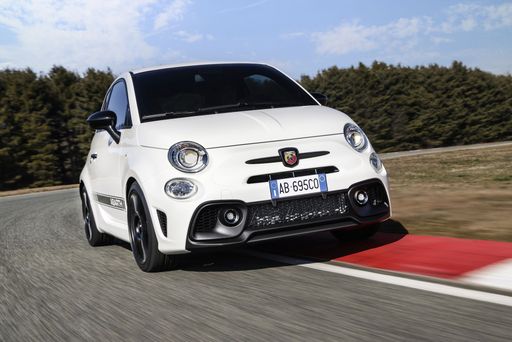 @ Abarth / Stellantis Media
@ Abarth / Stellantis Media
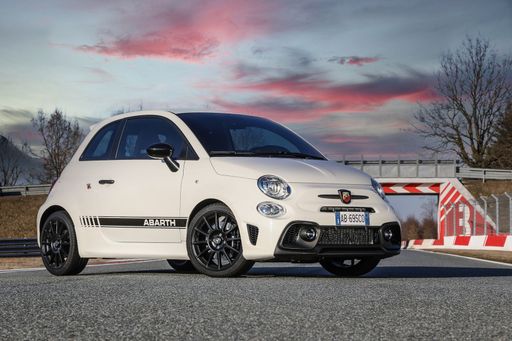 @ Abarth / Stellantis Media
@ Abarth / Stellantis Media
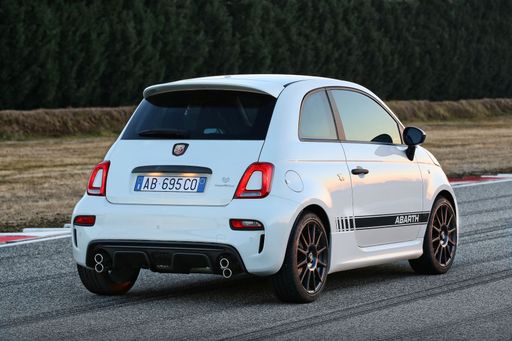 @ Abarth / Stellantis Media
@ Abarth / Stellantis Media
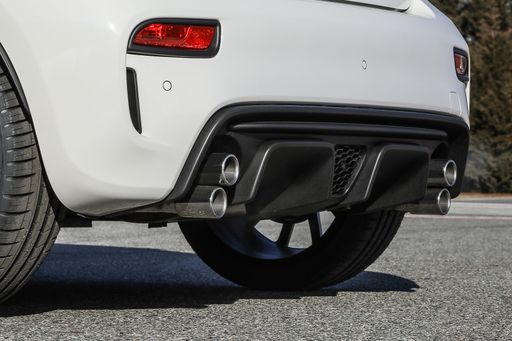 @ Abarth / Stellantis Media
@ Abarth / Stellantis Media
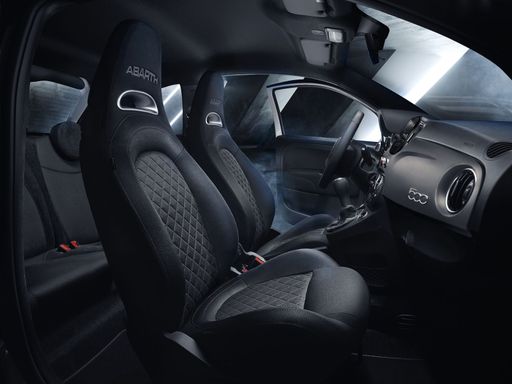 @ Abarth / Stellantis Media
@ Abarth / Stellantis Media
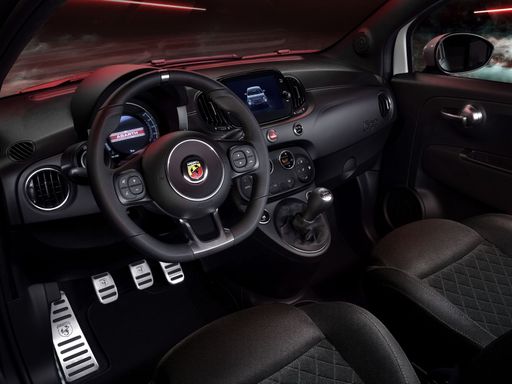 @ Abarth / Stellantis Media
@ Abarth / Stellantis Media
Peugeot Partner
The Peugeot Partner is a versatile and practical vehicle, ideal for both urban and rural settings. Its spacious interior and adaptable seating make it a popular choice for families and businesses alike. With a focus on reliability and efficiency, the Partner is well-suited to meet the demands of everyday transport.
details
 @ Abarth / Stellantis Media
@ Abarth / Stellantis Media
|
|
|
|
|
Costs and Consumption |
|
|---|---|
|
Price
32600 - 39400 £
|
Price
22400 - 33800 £
|
|
Consumption L/100km
-
|
Consumption L/100km
5.2 - 6.3 L
|
|
Consumption kWh/100km
17.1 - 18.8 kWh
|
Consumption kWh/100km
17.40 kWh
|
|
Electric Range
242 - 265 km
|
Electric Range
354 km
|
|
Battery Capacity
37.80 kWh
|
Battery Capacity
-
|
|
co2
0 g/km
|
co2
0 - 143 g/km
|
|
Fuel tank capacity
-
|
Fuel tank capacity
53 - 61 L
|
Dimensions and Body |
|
|---|---|
|
Body Type
Hatchback
|
Body Type
Cargo Van
|
|
Seats
4
|
Seats
2 - 5
|
|
Doors
3
|
Doors
4 - 5
|
|
Curb weight
1410 - 1435 kg
|
Curb weight
1329 - 1813 kg
|
|
Trunk capacity
185 L
|
Trunk capacity
1800 L
|
|
Length
3673 mm
|
Length
4403 - 4753 mm
|
|
Width
1682 mm
|
Width
1848 mm
|
|
Height
1518 mm
|
Height
1796 - 1812 mm
|
|
Max trunk capacity
550 L
|
Max trunk capacity
3300 - 4000 L
|
|
Payload
370 - 385 kg
|
Payload
611 - 991 kg
|
Engine and Performance |
|
|---|---|
|
Engine Type
Electric
|
Engine Type
Electric, Diesel, Petrol
|
|
Transmission
Automatic
|
Transmission
Automatic, Manuel
|
|
Transmission Detail
-
|
Transmission Detail
Reduction Gearbox, Manual Gearbox, Automatic Gearbox
|
|
Drive Type
Front-Wheel Drive
|
Drive Type
Front-Wheel Drive
|
|
Power HP
155 HP
|
Power HP
102 - 136 HP
|
|
Acceleration 0-100km/h
7 s
|
Acceleration 0-100km/h
11.20 s
|
|
Max Speed
155 km/h
|
Max Speed
135 - 183 km/h
|
|
Torque
235 Nm
|
Torque
205 - 300 Nm
|
|
Number of Cylinders
-
|
Number of Cylinders
3 - 4
|
|
Power kW
114 kW
|
Power kW
75 - 100 kW
|
|
Engine capacity
-
|
Engine capacity
1199 - 1499 cm3
|
General |
|
|---|---|
|
Model Year
2023
|
Model Year
2024 - 2025
|
|
CO2 Efficiency Class
A
|
CO2 Efficiency Class
A, E
|
|
Brand
Abarth
|
Brand
Peugeot
|
Is the Abarth 500 595 695 offered with different drivetrains?
The Abarth 500 595 695 is offered with Front-Wheel Drive.
The prices and data displayed are estimates based on German list prices and may vary by country. This information is not legally binding.
